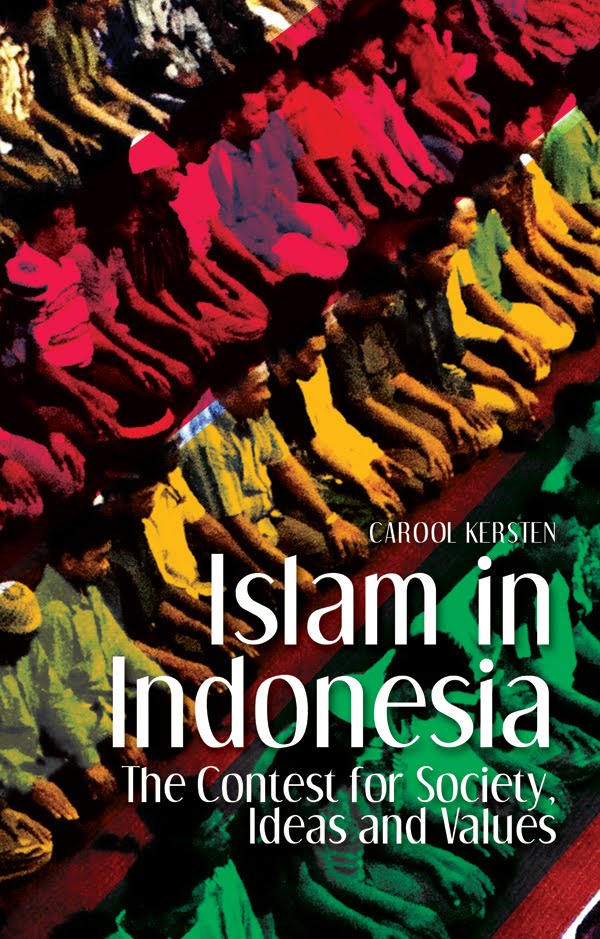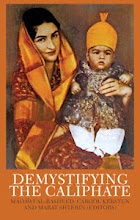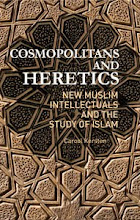Indicative are two articles appearing at the same time on the Qantara website, the Germany-based news service about the Muslim world.
In an interview cultural historian Gerhard Schweizer points out that:
Erdogan is trying – as no other Turkish Prime Minister before him – to make use of the strategic value of being the only Muslim country to maintain close relations with Western states and Israel on the one hand, and Arab states and Iran on the other. This gives Turkey the opportunity to act as a mediator, both between Syria and Israel and between Iran and the United States.In response to a question why Pesident Abdullah Gül prefers Turkey to be 'a leading nation in the Islamic world than bringing up the rear in the West', Schweizer observed that:
[he] is seen as a staunch advocate of Turkish entry into the EU. He proved this convincingly during his time as Foreign Minister. His words indicate a certain disappointment that many European countries are delaying entry talks; some are even blocking it altogether. Germany under Angela Merkel and France under Nicolas Sarkozy play a more ambivalent role.As for the reactions elsewhere in the Muslim world:
The Arab states and Iran are observing Turkey's growing involvement in the Islamic realm with mixed feelings. On the one hand they welcome the fact that Turkey, which until now has maintained ties strictly with the West, is now also seeking to establish contacts with its Eastern neighbours whom the West regards with mistrust, and in doing so it is raising their international standing. On the other hand, though, its relations with these countries are burdened by the weight of history.Schweizer maintains that the AKP under Erdogan has consistently navigated a pragmatic course:
It would be completely mistaken to believe that Turkey's greater political opening towards to its Muslim neighbours is motivated by religion. It is not their common religion that leads to rapprochement among the Muslim states but their common strategic interests. [...] However, in this instance it is not only Turkey that is being pragmatic, but also Iran. It would be impossible for Iran to form a close alliance with the Turks for purely religious reasons. In this context, may I remind you that Iran, a fundamentalist theocracy, did form a close alliance with secular Syria in the early 1980s, purely based on strategic considerations – an alliance that has lasted to this day.He therefore adamantly rejects the suggestion that the AKP is motivated by an Islamist agenda:
The accusation that the AKP is trying to establish an Islamist state in Turkey is out of touch with reality. Erdogan does have Islamist roots; his political mentor Necmettin Erbakan was an Islamist. But Erdogan's great success in the polls and subsequent popularity were precisely because he came to power promising to reconcile Islam and the modern secular state, and to overcome intolerant nationalism through the systematic cultivation of democracy.At the same time, Qantara also included a critical article on the shadow side of the entrepreneurial elan that is driving Turkey and which has the full support of the AKP Government: The risk that Istanbul's historical centre will lose its status as a UNESCO Heritage Site as a result of years of mismanagement and flagrant disregard of the pertaining guidelines. Ironically, this news broke while Istanbul is still Europe's Cultural Capital of 2010. As a result:
It is one of the paradoxes of Turkish politics that it is no longer the strictly secular parties, those who orientate themselves towards Atatürk, who are the most emphatic advocates of extending democratic rights. These days it is rather the "Islamic-secular" AKP that is the biggest champion of reforms aimed at paving Turkey's way into joining the EU.
Nervous tension lies like a pall over the city, disbelief: UNESCO wants to revoke Istanbul's World Heritage status. The Old Town is to be put on the red list of endangered cultural heritage sites. And more than a few people nod to themselves, thinking that's just where it belongs. But what a resounding slap in the face for the authorities, what a scandal if it really happens: now of all times, when the city fathers are still gloating over earning the title of European Capital of Culture 2010.Apparently there are some sinister motives behind the lack of cooperation by the responsible government bodies in Istanbul:
The municipal administration in Fatih is in charge of this part of the city. When UNESCO arrived with money and know-how, the administration not only didn't lift a finger to support the project – it even did everything in its power to sabotage it. "They insinuated to the inhabitants that this was a clandestine project of the Greek patriarchate", says attorney Aysegül Kaya. "The patriarchate supposedly wanted to set up a second Vatican here with the help of the UN: an independent church state."
Crazy? This country has plenty of practice in fomenting paranoia amongst its citizens. When the UNESCO team fanned out to bestow money and restoration plans on the homeowners, many residents slammed the door in their faces.However, aside from these less savoury aspects, it is also very much a matter of 'money talks':
The time was ripe for the AKP-led municipal administration to take action. Middlemen swooped down and persuaded owners to sell their houses below market price – threatening that they would otherwise be confiscated.As one disenchanted architect and government adviser, Korhan Gümüs, said:
"The State does without expert knowledge, without the intelligence available in the society. It acts technocratically. Instead of architects or historic preservationists, it hires construction companies. The results are corruption and injustice. The authorities represent the interests of the most powerful players: the entrepreneurs."Reflective of these two sides of present-day Turkisch politics and policy making are the media reports on the reopening of an Istanbul landmark, the Pera Palace Hotel, after a four-year refurbishing. The former terminus of the Orient Express, the hotel was the scene of much political wrangling in the final days of the Ottoman Empire. Restored it to its former glory but with a contemporary touch, it acts as a symbol for the ambitions of present-day Turkey. At the same time both Associated Press and Arab News also referred to the endangerment of Istanbul's status as a cultural hallmark of world significance. Is this the price to be paid for Turkey's new-found assertiveness and self-confidence through the Neo-Ottoman -- pragmatic rather than religious -- designs of the AKP?












